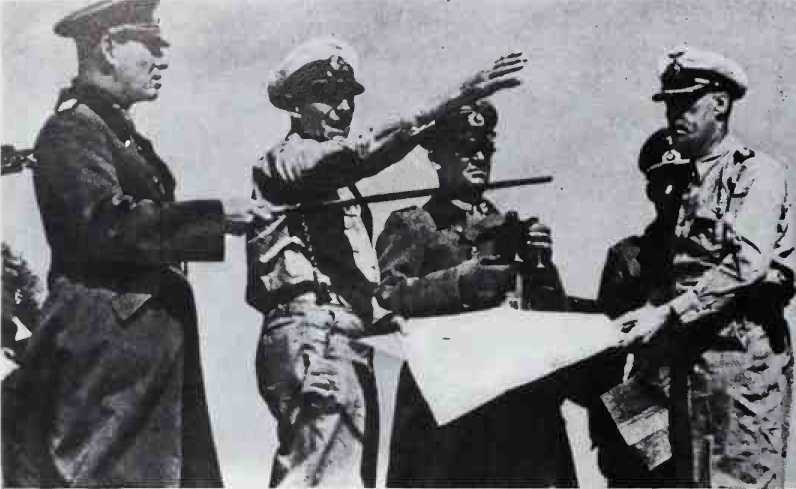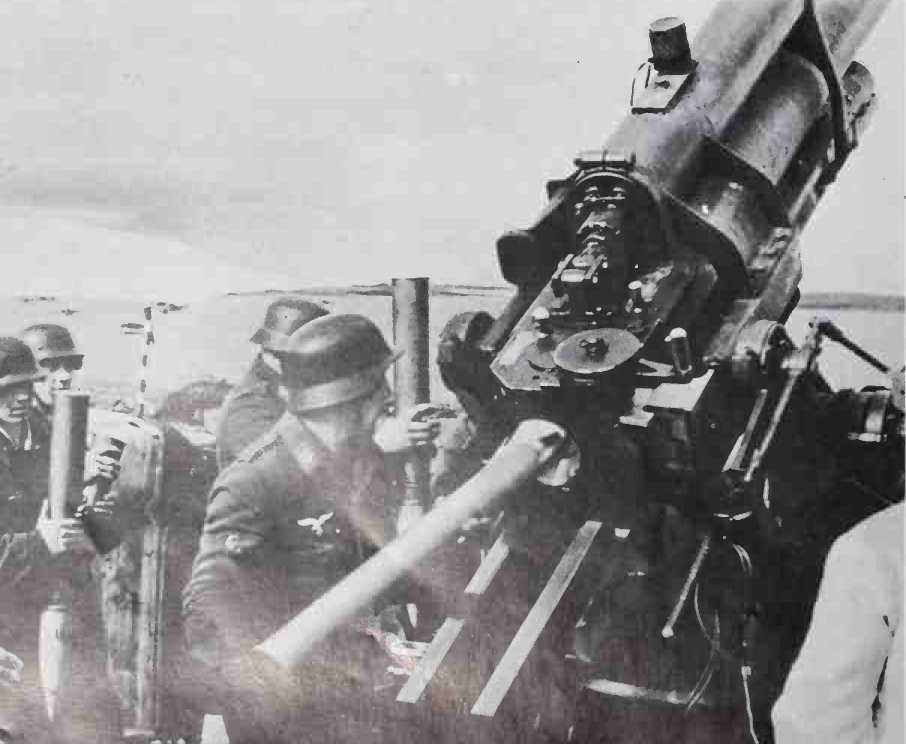
A Rommel (left) confers on the siting of a new battery with German Navy officers. Armyl Navy co-operation on such matters was less than smooth.

On D-Day, Rundstedt, as Commander-in-Chief in the West, had the following under his command: two army groups ("B” and "G”), comprising four armies (7th, 15th, 1st, and 19th). These in turn had 15 corps between them, totalling 40 infantry, four parachute, four Luftwaffe field, nine Panzer, and one Panzergrena-dier divisions.
However, for all this it is by no means true that Rundstedt exercised over this force the authority normally given to a commander-in-chief. In the first place, the Luftwaffe units (one corps, eight divisions) were only under his tactical command; the same was true of his four Waffen-S. S. divisions and the I S. S. Panzer Corps. He had no authority over these units in the questions of training, promotions, the appointment of commanders or in the field of discipline. That is what Hitler cruelly reminded Rommel, who had requested that action be taken against the 2nd "Das Reich” Panzer Division of the Waffen-S. S., after the appalling massacre at Oradour-sur-Glane.
Even more, O. B.W. had had it made quite clear that it could not, without the Fiihrer’s permission, move two of its best armoured divisions, the 12th "Hitler-jugend” Waffen-S. S. Panzer Division, stationed near Lisieux, and the 130th Panzer-"Le/ir” Division, formed the previous winter from Panzer instructors and now stationed around Chateaudun. Moreover, O. K.W. did not cease interfering in Rundstedt’s sphere of command, as the latter explained bitterly to the British officers who questioned him after his capture:
'T did not have my way. As Commander-in-Chief in the West my only authority was to change the guards in front of my gate.”
As will be seen later, everything confirms the truth of this account. Therefore it appears that Hitler did not appreciate the complete incompatibility between despotic, arrogant, and meddling authority, and the need to make rapid decisions, the vital importance of which he soon came to recognise.




 World History
World History









